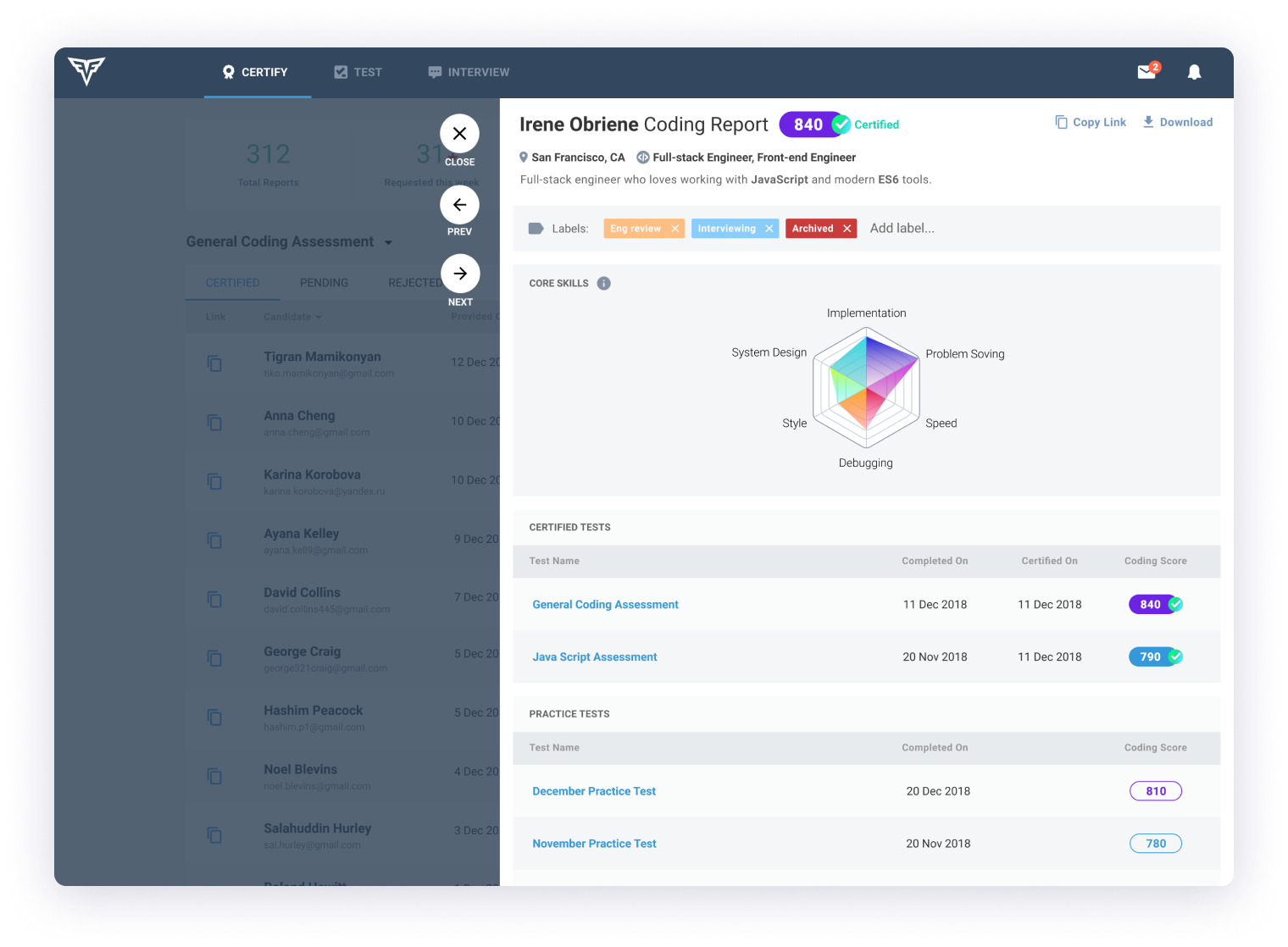I wrote a post a few weeks ago about how I sometimes regret specializing in a front end development framework. Mainly because I inadvertently pigeonholed myself into work with outdated technology. What I realized I might have been accidentally implying in that post is that the tech industry therefore prefers multi-passionate people. I wanted to correct this implication because it is extremely incorrect, in fact I would argue that it is the opposite. There are not a lot of creative jobs in the tech industry, at least not if you are a developer. This is what makes it especially difficult for multi-passionate folks.
Technical interviews, especially for developers, are grueling. It is not uncommon to have one or two coding tests, sometimes with multiple developers watching you code live and taking notes while they’re at it. I’ve had cognitive assessments, personality tests, multiple choice questions, timed exams, and everything in between. What sucks the most is that almost all of these tests are designed to assess your left brain. That is, how good you are at algorithmic thinking, or logic puzzles, or your depth of understanding a specific programming language.

It’s a real frustration for someone like me, who has a mixture of skills in user experience, web design, and front end development. I often find when I’m looking at jobs that the ones which list this mixture of skills as “desired” are also the companies which are very small and basically just want to have one developer that doesn’t mind “working under pressure” (sidebar: if a job asks you about how comfortable you are under pressure, you should probably run away). Then the jobs which specifically want a “front end developer” couldn’t give a damn that I know my way around Photoshop, or that I have an online portfolio that showcases my game development, or that I have interests outside of technology at all.
The closest thing I found among creative jobs in the tech industry that I came across was being a UI developer, which crossed the boundary between user experience design and programming to some extent. But it was still a far cry from truly stretching my creative muscles.
Of course I would not write this if I thought I was the only one who experienced this frustration. There is a ton of gate-keeping in the industry, which you can read about here, here, and here. Not expressing enough passion about coding or not being up with the latest frameworks can easily cost you the job. As a result, people in the tech industry often feel pressured to give up their hobbies and their other interests and spend both their time inside and outside the office brushing up on trends, researching new tools, and making side projects to stay fresh.

This is a huge turn off for most multi-passionate folks. They tend to get bored doing the same thing each and every day. When they first discover a new interest they might become intensely absorbed in it for a while. But eventually that intense interest tapers off and is replaced with something else. Emilie Wapnick discusses this phenomenon in her fantastic TED talk, which I highly recommend.
The tech industry receives so much criticism for excluding people and ideas. Yet it continuously encourages developers to specialize in more and more specific tools. What the industry needs most right now is people who value the the long term happiness of their customers. That includes the user experience, genuine human interaction, and taking privacy seriously. To do this well, employees should be able to put themselves in the shoes of their customers. Hiring people who have diverse experiences and a wide range of interests would certainly help. Hiring people for their single-minded obsession with technology will have the opposite effect. It will continue to fuel the delusion that all problems can be solved with more technology.

Some might infer from this that I want to do away with all coding tests. No. I am not advocating for an extreme approach. I think currently the industry skews very far in demanding employees to live, breathe, and eat code. That it is not conducive to a collaborative and open minded workforce. Of course it also relates to the bigger problem of toxic work culture. That, unfortunately, is another can of worms I won’t get into in this post.
Hiring in tech is broken. Having a single minded focus on the developers technical skills dehumanizes them. It also makes multi-passionate folks feel like they need to fit a very specific mold. I believe it is also the reason why so many companies don’t invest in good UX researchers and designers. After all, those skill-sets bridge different industries and require a more multi-passionate approach. Many companies seem to not see the value in anything that is not pure code. Basically anything that doesn’t follow the motto of “move fast and break things”.

Part of the reason I started this blog was to have an outlet to talk about all of my interests. It’s incredibly rewarding to be able to write about a multitude of topics. While there are not a lot of creative jobs in the tech industry for developers, there are other ways to stretch your creative muscles. I do it by refusing to force myself into a niche that I would get sick of after a few weeks. The tech industry is changing, albeit not as quickly as I would like. I hope this post reaches the people who can spread the message that multi-passionate people in tech should be embraced rather than estranged.
If you enjoyed this article, consider following me on Twitter @nadyaprimak or if you need more tips on breaking into the tech industry, you can read my book “Foot in the Door”.
